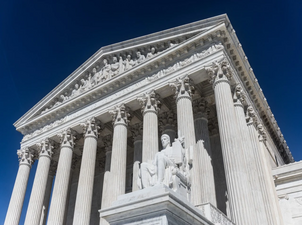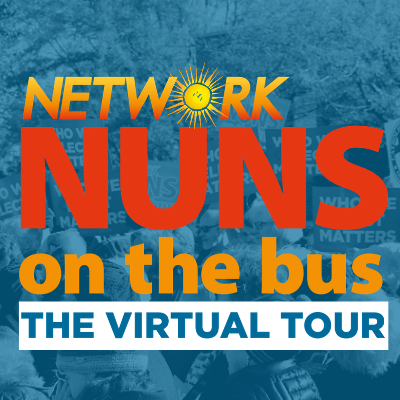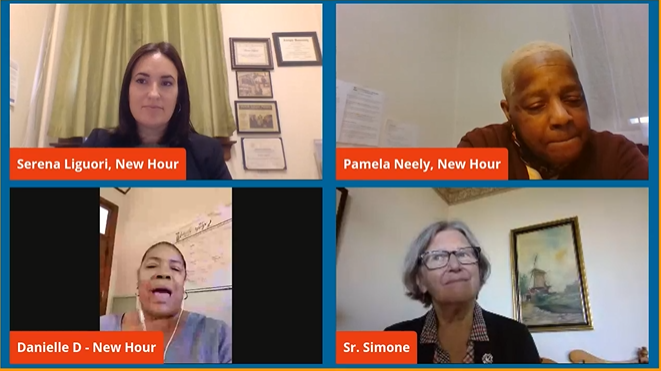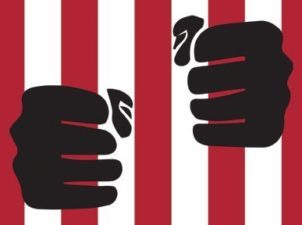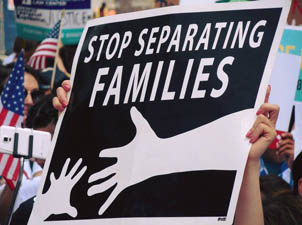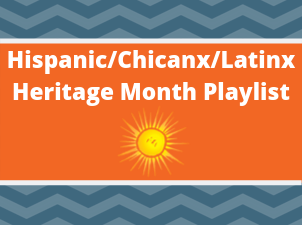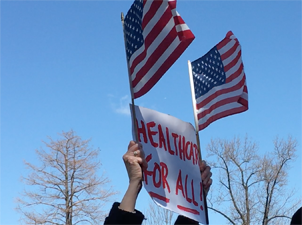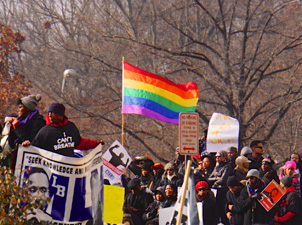
Black History Month: Honoring those who Resisted Voter Suppression
India-Grace Kellogg
February 22, 2021
During this year’s Black History Month after a contentious election, we honor the Black women and men who organized and advanced Black voting power and political representation and recognize the ways white supremacy has shaped the U.S. political system to minimize Black votes and voices.
Following the 2020 election, which hinged on record-breaking voter turnout – especially Black voter turnout – in Georgia, Nevada, Pennsylvania, Wisconsin, and Michigan, multiple sitting Members of Congress refused to certify the Electoral College vote. President Trump’s claims of voter fraud in Detroit, Philadelphia, and Georgia were overtly racist, and even after the violent mob attack on the Capitol, when the vote to certify was held in the early hours of January 7, 2021, eight Republican Senators and over 100 Representatives held firm with former President Trump.
This challenge to Black voters’ power echoed our nation’s last challenge to the Electoral College in 1876 during the election between Samuel Tilden and Rutherford B. Hayes.
1876: A Backlash to Black Political Participation during Reconstruction
Prior to 1876, there had been a surge of mobilization within the Black community. During the first two years of Reconstruction after the Civil War, Black people throughout the South organized Equal Rights Leagues and held state and local conventions to demand suffrage and equity. Congress granted Black men the status and rights of citizenship in the 14th and 15th Amendments to the U.S. Constitution and state constitutional conventions held in formerly Confederate states between 1867-69 were the first time that Black and white Americans participated in political life together. 265 African-American men were elected delegates to these conventions that re-wrote state constitutions, almost half in South Carolina and Louisiana.
Initially, under the protection of the 15th Amendment and because of the overwhelming majority of Black citizens in the South, Black voters had strong voting power during Reconstruction. In Congress, 16 Black men served during Reconstruction and more than 600 Black state legislators were elected, with hundreds more holding local offices across the South. The first Black men to serve in Congress were Senator Hiram Revels of Mississippi and Representative Joseph Rainey of South Carolina. (It was nearly a century from their elections in 1870 until voters elected Representative Shirley Chisholm the first Black woman in Congress in 1968.)
Challenging the Electoral College Results
The outcome of 1876 election between Samuel Tilden and Rutherford B. Hayes was unclear from the beginning. When the electoral vote was received by Congress, Tilden held 184 votes and Hayes held 165 votes. However, claims of fraud, intimidation, and violence that had been used to invalidate votes in the South, and Oregon delivered two sets of conflicting electoral votes to Congress.
These conflicting results presented an opportunity for Southern Democrats who had lost power in the South after the Civil War. They wanted to restore their control of governments in the South and to remove the last of the federal troops whose purpose had diminished to protecting governments in small areas surrounding state houses in the capitals of New Orleans and Columbia. An agreement was reached for Hayes to pull out the remaining federal troops in the South in return for a pledge to uphold the civil and voting rights of Black and white Republicans. As a result, filibusters were ruled out of order and Southern Democrats forced through the vote, declaring Hayes the winner with 185 electoral votes two days before he was inaugurated.
White Supremacy Curtails Reconstruction
The Supreme Court had already begun to limit the scope of the Reconstruction laws and Constitutional Amendments, beginning with the Slaughterhouse Cases which limited protection of the privileges and immunities clause of the 14th Amendment of the United State Constitution. However, with the removal of federal troops following President Hayes’s inauguration, white political leaders in the South began suppressing Black votes as the pledge to protect voting rights was quickly abandoned. While the Reconstruction Amendments remained in the Constitution, a new web of laws and requirements made voting nearly impossible for Black citizens. Under new gerrymandered election districts which reduced Black voting power, the Jim Crow era swept the South, creating a framework of voter suppression that has continued to evolve in face of reforms.
White political leaders in Southern states put in place literacy tests, poll taxes, moral character tests, and grandfather clauses targeting Black voters. Black voters who could pass these barriers then faced the threat of violence or property or job loss in retribution for attempting to vote. Additionally, the disenfranchisement of felons blocked many black voters. Black people were often arrested in the South on false charges or for vague crimes, such as “crimes of moral turpitude”, and sent through a criminal justice system that profited from black prisoners’ free labor when they were incarcerated. The over-criminalization of the Black community meant that the disenfranchisement of felons disproportionately affected Black voters in the South. These strategies reversed much of the progress that had been gained since the Civil War, with Black voting power reduced to less than 1% and the upward trend of Black men elected to office from southern states quickly ended.
Continued Voter Suppression
While the Voting Rights Act of 1965 changed the landscape of voting in the South for Black voters especially, voter disenfranchisement still continues throughout the U.S. With Black Americans still overrepresented in the prison population, bans on voting due to criminal history continue to impact Black communities more than any other. Since Shelby County v. Holder, struck down the requirements of federal oversight, many states have passed additional voting requirements that are only subject to litigation after the fact. State across the country have begun to redistrict, require stricter voter identification, shut down polling locations, and limit early voting. While on their face these changes may seem to be aimed at reducing voter fraud, the reality is that these new restrictionsdisproportionately disenfranchise voters of color and minority communities.
The rhetoric surrounding voting, amplified by former President Trump, has disguised the true effect of the changes to voting requirements. Government-issued photo ID requirements effect minorities more than white voters, as minorities are less likely to have the needed forms of identification. Despite the argument that voting roll purges prevent voter fraud, the real impact of these purges is that many valid votes cannot be cast because voters were unaware that they had been removed from the voter rolls. Polling location closures, overwhelmingly in communities of color, result in longer wait times or travel time. This makes voting much more difficult and in some cases impossible due to lack of transportation or working hourly jobs. The conversation surrounding voter fraud and the barriers that are put in place to “fix” this so-called fraud have strong ties to the compromise of 1876 which marked the beginning of the Jim Crow era.
But the fight to achieve true voting rights and equity remains strong and in the last two elections there has been a resurgence of energy to fight voter suppression. While a major struggle in 1876 was the end of Reconstruction in the South, the 2020 election was a demonstration of the power of Black people successfully organizing against the racial inequality still existent today. The result of the Jim Crow laws put into place after Federal troops were withdrawn still haunt our nation and dog communities of color with their pervasive legacies and new iterations. Despite this, representation of black communities has grown steadily over the past 20 years. In fact, the most recent Congress, was the most diverse Congress ever to be elected to office.
Black Voting Rights Advocates Continue Leading the Movement
This progress would not have been possible without Black organizers’ efforts to mobilize voters. Black-led movements to equip and encourage voters, especially in swing states, were spurred on by the disproportionate impact of COVID-19 on Black communities and the nation-wide protests against police brutality. During the 2020 Nuns on the Bus tour, we met Black organizers like Rev. Tawanda Davis of Soul 2 Soul Sisters in Denver and the staff of BLOC by Bloc in Milwaukee who led successful voter turnout initiatives in key states.
While this was a national movement, the 2020 Senate run-off election in Georgia was one of the most historic. This success mainly came from the efforts of Stacey Abrams. Abrams founded Fair Fight to ensure all eligible Georgia voters could vote after her historic 2018 run for Georgia Governor ended with clear mismanagement of the election by now-Governor Kemp’s Secretary of State office. Stacey Abrams with other organizers worked to mobilize the vote and were met by Black voters in Georgia as trusted voices. Senator Rev. Raphael Warnock’s successful campaign makes him Georgia’s first Black Senator. This and other elections prove that the power that was seen in the Black vote during Reconstruction is just as strong, but still has not been fully released from the remnants of the Jim Crow laws that sprung up after the 1876 compromise.
Introduced and sponsored by Black members of Congress, the For the People Act and John Lewis Voting Rights Advancement Act present an opportunity to correct injustices in our voting system. With the swearing in of the first woman of color as Vice President, Vice President Kamala Harris, our nation may have come a long way since the end of Reconstruction, but we must remember that the work is not done.








